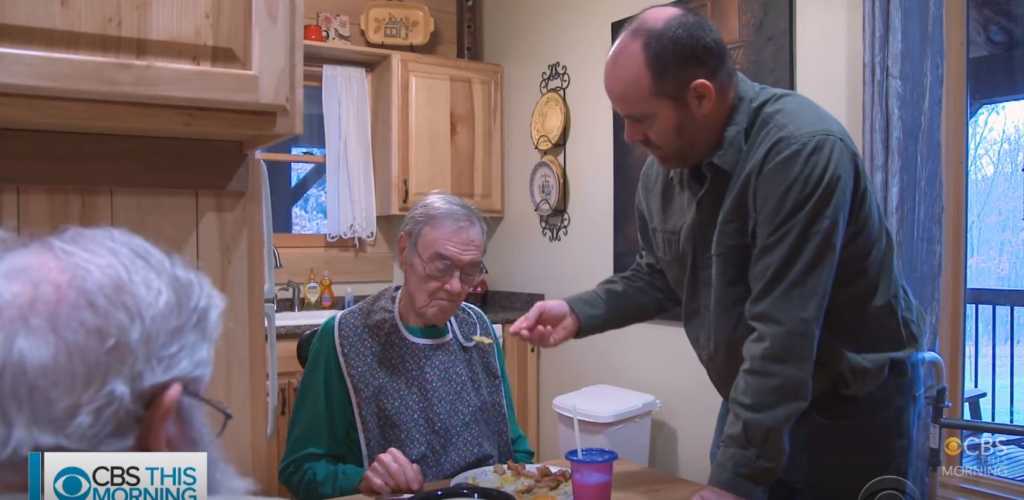An Indiana couple has taken the bold and compassionate decision to welcome three war heroes into their home, despite having six kids of their own. Sarah and Troy Rufing, along with their children Hannah, 14, Matthew, 11, Sophie, 10, Sam, 7, Catherine, 5, and Clover, 3, were moved to help the veterans after they became unable to live on their own or with family.
Clemson’s Dabo Swinney Surprises Down Syndrome Team Member With Two Tickets to Super Bowl
However, thanks to the U.S. Department of Veteran Affairs Medical Foster Home Program, these brave men were not going to live the rest of their days alone — they were going to be part of a family, and a brotherhood, once again.
“A Medical Foster Home can serve as an alternative to a nursing home,” reads a description on the program’s website. “It may be appropriate for Veterans who require nursing home care but prefer a non-institutional setting with fewer residents.”
The Rufings, who help bathe, care for and feed the elderly vets, are just two of some 700 participants across 44 states who are currently hosting disabled veterans in their homes.
VA program coordinator Lori Paris told People magazine that veterans living in this type of setting “tend to thrive” and often undergo “fewer hospitalizations than those who are living alone or in institutional care.”
“This environment really enriches the lives of both the veterans and the remarkable caregivers who accept these veterans into their homes,” she added.
In addition to the warm and loving care the veterans receive from their host family, they are also paid regular visits by VA health-care professionals including doctors, occupational therapists and even psychologists.
Though the 24/7 care can be tough at times, the Rufing family, who receive a monthly stipend for their work, insist that it is an absolute privilege to serve the men who so courageously risked their lives for our freedom.
“It’s like having your grandparents live with you,” Sarah told People. “We’re one big family.”
One of their residents, 87-year-old Sgt. Charles Hughes, agrees wholeheartedly.
“They take care of us,” Hughes said. “They’re all just so sweet and nice.”
A recent altering of healthcare rules by the Trump administration means that any veteran who lives more than 30-minute drive from a Veterans Affairs health care facility will be able to choose private care instead.
According to The New York Times, the current law lets veterans use a private health care provider only if they can prove that they are required to travel 40 miles or more to a Veterans Affairs clinic. The administration hopes that this long-sought change will ensure vets get the care they need, on time.
“This is the most transformative piece of legislation since the G.I. Bill,” Robert Wilkie, the secretary of veterans affairs, told the Times. “It gets us on the road to becoming a 21st-century health care institution.”



